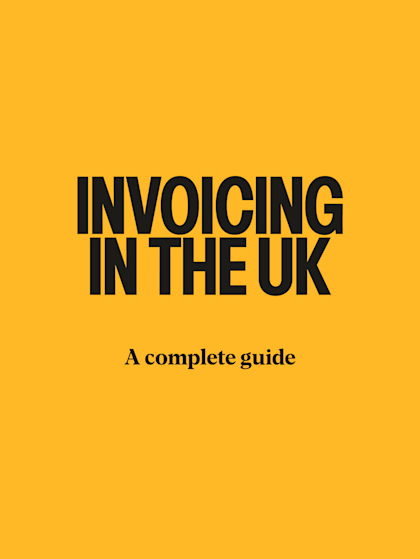
Invoicing best practices
Last editedSep 20221 min read
A guide to best practices businesses should follow when billing by invoice.
There are several invoicing best practices that businesses should follow:
Invoice promptly, preferably immediately
Some small companies still save up their invoices and send them out weekly or once a month. This creates a drag on cash flow. Invest in invoicing software to issue demands as soon as work is finished or goods have been shipped.
Research online accounting apps
These can make it easy to track hours worked on a project, as well as any expenses incurred, and will allow you to bill clients accurately, quickly, and on the move using a mobile phone or tablet. Apps will even issue reminders for tardy payers. Having a reliable, detailed record is also useful if the final bill is disputed.
Offer early settlement discounts
This could be a 2/10 Net 30 arrangement, whereby customers get a 2% discount on an invoice paid in ten days, with the full amount due within 30 days if this early deadline isn’t met. Some businesses go further and offer a 5% or even 10% discount for a ten-day settlement period.
Tighten your payment terms
While many businesses still operate a 30-day payment cycle, it’s not obligatory to do so. Some SMEs now ask for bills to be settled within seven working days. And keep an eye out for customers who are drifting in meeting payment terms. Credit control is an important part of your business, so nip any bad behaviour in the bud.
Eliminate stressful & costly late payments with automated invoice collection. GoCardless is quick & easy to set up & gets your invoices paid on time, every time.
“Overdue invoices are virtually non-existent and that makes us happy!” - George Ford, Director, Veriphy
Know who you’re dealing with
Undertake a credit risk assessment and research a new client before agreeing to provide them with expensive goods or services. Is it a real company? Is it a sole trader or limited company? Ask industry peers about the individual or organisation’s reputation before doing business with them.
Don’t be embarrassed to chase late payment
Enforce your payment terms, but always be polite and persistent to try to achieve an informal settlement. There are legal measures at your disposal – late payment legislation allows a business to charge 8% over base rate in interest where payment hasn’t been received, plus a penalty fee – but this can sour relations permanently. The legal route should be a last resort. Try persuasion first.
Eliminate stressful & costly late payments with automated invoice collection. GoCardless is quick & easy to set up and gets your invoices paid on time, every time.
“Overdue invoices are virtually non-existent and that makes us happy!” - George Ford, Director, Veriphy
Interested in collecting payments by Direct Debit?
Find out if online Direct Debit is right for your business

